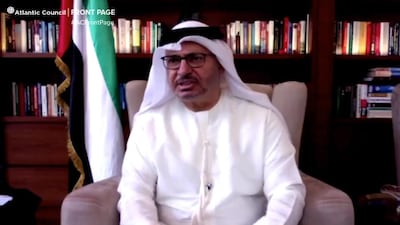The UAE's Minister of State for Foreign Affairs, Dr Anwar Gargash, on Saturday said the Gulf did not need Turkish forces in Qatar or any attempt to revive colonialism.
“The Turkish military presence in the Arab Gulf is an emergency and it contributes to negative polarisation in the region,” Dr Gargash wrote on Twitter.
“It is the decision of ruling elites in the two countries that reinforces the policy of polarisation and axes, and does not take into account the sovereignty of states and the interests of the Gulf and its peoples.
"So our region does not need garrisons and [to] reproduce colonial relations dating back to a previous era."
On Thursday, Turkish President Recep Tayyip Erdogan claimed his country's military presence in Qatar was to ensure peace.
Mr Erdogan held talks with the Qatari Emir, Sheikh Tamim, in Doha on Wednesday after visiting Kuwait to offer condolences on the death of Sheikh Sabah, who had ruled the country since 2006.
Turkey signed a security agreement with Qatar in 2015 and began posting troops there in June 2017.
That was after fellow Gulf states Saudi Arabia, the UAE and Bahrain, along with Egypt, announced a boycott of Doha because of its interference in their internal affairs and support for terrorist groups such as the Muslim Brotherhood.
Last November, a Turkish military base was built near Doha as part of the security agreement. It hosts about 5,000 troops.
Turkey has also angered western allies and Arab states with its behaviour, including military interventions in northern Iraq, the civil wars in Syria and in Libya.
In Libya, Ankara and Doha have given military support to the Tripoli-based government, despite widespread condemnation from much of the international community.

